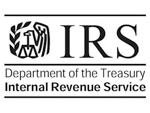Who Should I Name as my Beneficiary for my Self-Directed IRA?
 For both traditional and self-directed IRAs, a will cannot determine beneficiaries. That’s because each IRA includes a beneficiary designation, set by a form you fill out upon opening the account. This designation supersedes any information in a will. Considering this beneficiary designation form will determine who your IRA funds will care for upon your death, it’s important to take some time and think about how you’ll fill it out. Beyond who inherits your IRA, your beneficiary designation actually has a significant impact on how long the funds in your IRA last.
For both traditional and self-directed IRAs, a will cannot determine beneficiaries. That’s because each IRA includes a beneficiary designation, set by a form you fill out upon opening the account. This designation supersedes any information in a will. Considering this beneficiary designation form will determine who your IRA funds will care for upon your death, it’s important to take some time and think about how you’ll fill it out. Beyond who inherits your IRA, your beneficiary designation actually has a significant impact on how long the funds in your IRA last.
Uncle Sam requires you to take out a minimum amount of money each year after you reach the age 72. These are called RMDs—Required Minimum Distributions. If you don’t spend all the money in your IRA during your lifetime, its benefits can be extended to other family members or beneficiaries of your choice (such as charities). Most IRA holders share a few goals when choosing IRA beneficiaries:
- Have assets distributed according to the IRA account holder’s wishes
- Minimize the tax impact for IRA beneficiaries
- Avoid the expense and time of probate
When choosing a beneficiary, it’s wise to work with your attorney as well as your tax advisor. You have several options for beneficiaries: Your spouse, your children, your grandchildren, a trust, or some combination of these. Read on to discover the advantages and disadvantages of these different beneficiary options.
Advantages and Disadvantages of Naming Individuals as IRA Beneficiaries
Advantages of Naming Your Spouse as the Beneficiary: If you name your spouse as the beneficiary, he or she can treat it exactly like their own IRA, in what’s called a spousal rollover. This is only true for your spouse—no one else can have such automatic flexibility when inheriting your IRA. Most any non-spousal beneficiary will need to distribute the account in full within a 10-year period.
Note: It’s important to stay current with IRA beneficiary designations. For instance, if you select spousal rollover, but then your spouse dies before you, it’s key to change the IRA to designate your children (or whomever you choose) as the new beneficiaries. You can create a backup plan for this sort of thing by naming contingent beneficiaries, who will receive the IRA assets if your primary beneficiary passes away.
Disadvantage of Naming Your Spouse as the Beneficiary: A spousal rollover with no contingency beneficiary allows your spouse to determine who should benefit from the IRA down the road. So if he or she decides to give money to children from a previous marriage, and exclude your children, you can’t do anything about it.
Naming Minor Children/Grandchildren as IRA Beneficiaries: If you name a minor, such as a child or a grandchild, as the beneficiary of your IRA, you will also need to name a guardian who will manage the IRA funds for the children until they reach adulthood (18 or 21 years of age, according to the state).
Another option is to name multiple beneficiaries, with dollar amounts or percentages set for each.
Advantages and Disadvantages of Setting a Trust as your IRA Beneficiary
Advantage of a Trust Beneficiary: If properly drafted, you can outline your wishes for subsequent beneficiaries in the trust. And because the trust is the beneficiary, your spouse (or whomever your designate as the trustee) must follow the trust’s guidelines for assets included in the trust. So, in the circumstance described earlier, you could prevent a spouse from skipping out on your children by stating which assets should go to your children according to the trust. When setting up the trust, you can also choose to distribute funds to charities without losing tax benefits.
Disadvantage of a Trust Beneficiary: Although living trusts avoid probate court (which is required for wills), there are still costs associated with gathering, assessing, and distributing trust assets. These costs may be especially onerous if you have small accounts. If your accounts are small, talk with an attorney about a custom beneficiary designation, which can create more detailed instructions than a standard beneficiary form.
Advantage of a Trust Beneficiary: A trust can provide the legal structure needed to give money to someone you don’t trust with managing your assets. This person may be a minor, a special needs individual, or a spendthrift.
Disadvantage a Trust Beneficiary: Transferring IRA assets into a trust may cost you more in the long run, particularly because this transference of assets triggers tax removal. (In contrast, if you put the same amount of cash into the trust, you wouldn’t have to pay taxes because cash is considered a post-tax asset.)
Advantage of a Trust Beneficiary: An inherited IRA is not considered a retirement plan and given the same level of protections from events such as bankruptcy. A properly structured trust may mitigate such risks.
These are a few of the big-picture considerations when setting a beneficiary for your IRA, self-directed or traditional. Consider your hopes for the future of your IRA funds, and then speak with an attorney and a tax expert to craft the perfect beneficiary designation for you and your family.
This page has been updated to reflect tax code changes implemented by the 2019 SECURE Act.
Talk to An Expert Today!
Learn these little known strategies and tactics, and unlock your retirement plan today.
